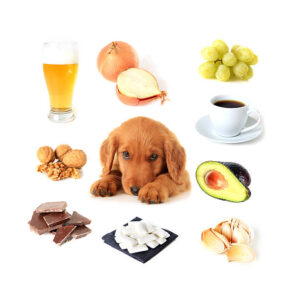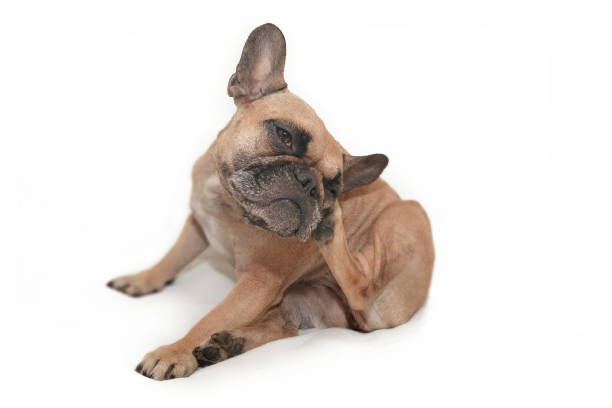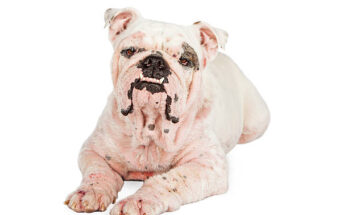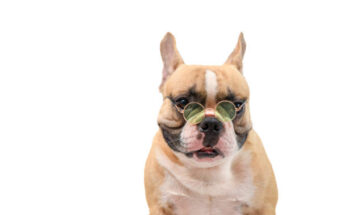As a dedicated dog owner for over 15 years, I understand the importance of providing the best nutrition for our furry friends, especially when it comes to managing allergies.
French Bulldogs, with their sensitive stomachs and predisposition to food sensitivities, require extra care when it comes to their diet.
In this blog post, I’ll outline some common foods that may trigger allergies in French Bulldogs, helping you make informed decisions to keep your beloved pet happy and healthy.
Keep Away These 10 Foods for French Bulldog Allergies
- Dairy Products:
While cheese and yogurt may seem like harmless treats, many French Bulldogs are lactose intolerant, leading to digestive upset, diarrhea, and skin issues.
- Grains:
Wheat, corn, and soy are typical allergens for dogs, and French Bulldogs are no exception. Opt for grain-free options to reduce the risk of triggering food allergies.
- Chicken:
Chicken is a prevalent protein source in dog food, but some French Bulldogs may develop allergies to it. Think about opting for alternative protein sources such as turkey or fish.
- Beef:
Like chicken, beef can also be a culprit for food allergies in French Bulldogs. Look for dog foods with novel protein sources such as venison or duck.
- Pork:
Pork is another potential allergen for French Bulldogs. Avoid feeding them pork products to prevent adverse reactions.
- Eggs:
While eggs are a nutritious source of protein, some French Bulldogs may be allergic to them.
Monitor your dog’s reaction to eggs and consult with your veterinarian if you suspect an allergy.
- Artificial Additives:
Artificial colors, flavors, and preservatives found in many commercial dog foods can exacerbate allergies in French Bulldogs.
Choose natural and minimally processed options whenever available.
Also Read,
- Certain Fruits and Vegetables:
While fruits and vegetables are generally healthy for dogs, certain ones like tomatoes, grapes, and onions can be toxic or allergenic to French Bulldogs.
Always research before introducing new fruits and veggies into your dog’s diet.

- Dairy Alternatives:
While lactose-free dairy products may seem like a safe option, they can still contain other allergens like soy or artificial additives.
Exercise caution and closely observe your dog’s reaction.
- High-Fat Foods:
High-fat foods like bacon or fried treats can trigger gastrointestinal issues and exacerbate skin allergies in French Bulldogs.
Stick to leaner protein sources and avoid excessive fatty treats.
Here are some (FAQs) about French Bulldog Allergies Food
- What are the common signs of food allergies in French Bulldogs?
– Common signs of food allergies in French Bulldogs include itching, scratching, licking, skin irritation (redness, rash, or hot spots), ear infections, gastrointestinal upset (vomiting, diarrhea), and chronic ear infections.
- What are the most common food allergens for French Bulldogs?
– Common food allergens for French Bulldogs include dairy products, grains (such as wheat, corn, and soy), chicken, beef, eggs, artificial additives (colors, flavors, preservatives), certain fruits and vegetables, and high-fat foods.
- How can I determine if my French Bulldog has a food allergy?
– If you suspect your French Bulldog has a food allergy, your veterinarian may recommend an elimination diet trial or allergy testing to identify the specific allergens.
Keeping a detailed food diary and monitoring your dog’s symptoms can also help pinpoint potential triggers.
- Can food allergies develop over time in French Bulldogs?
– Yes, food allergies can develop at any age, although they are more common in younger dogs.
A French Bulldog may develop an allergy to a specific ingredient after repeated exposure, so it’s essential to monitor their diet and symptoms closely.
- What should I do if I suspect my French Bulldog has a food allergy?
– If you suspect your French Bulldog has a food allergy, consult with your veterinarian for proper diagnosis and treatment. Your vet may recommend an elimination diet trial, allergy testing, or dietary changes to manage your dog’s symptoms effectively.
Conclusion
By avoiding these common allergenic foods and opting for high-quality, hypoallergenic alternatives, you can help alleviate your French Bulldog’s allergy symptoms and promote their overall health and well-being.
With a little extra care and attention to their diet, you can keep your French Bulldog thriving for years to come.
Also Read,





One Comment on “Avoid These Foods for French Bulldog Allergies”